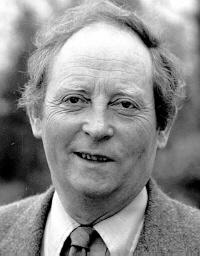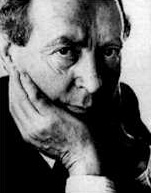John McGahern: 'All will be well'

Ralph Waldo Emerson said that “all history resolves itself easily in the biography of a few stout and earnest people”. Certain voices come along and make sense of a time, an era, a culture, or the gap in between. Suddenly all the windows in the room are thrown open. The time, or the room itself, seems impossible without that voice. When we look back, it is hard to make sense of the days gone by without the rhythm, the bark, the bite, the cadence.
John McGahern was older in experience than he was in years. He had his feet in the dark of the present and the past. He knew two Irelands very well but he didn't make a big fuss about it. He let his stories do the thinking. He spoke of days that amused or grieved him. He spoke too of savagery and redemption. He made use of what others found useless. Silence and repetition stretched over him. He was happy that there was still some goodness left in a few lives, mostly lives that seemed, on the surface, simple ones. He has been called the voice of rural Ireland, as if he were somehow its conscience, or its originator, but that's not quite right. In truth he spent most of his time, and his words, at the edge, looking in. He was a scholar of what it meant to lose things. He could tell what weather was coming over the fields. He didn't always like what he saw, but he gave a voice to it anyway.
His passing is as much the passing of an era as it is the passing of a man.
He was born in Dublin in 1934 but that, as they say, was not his fault. He grew up in Leitrim and Roscommon, in that particular shallow grass, on that particular mushy soil. He published six novels, four collections of stories, a memoir. In 1965 he was dismissed from his position as a schoolteacher after publication of his second novel, The Dark. He moved to London where he taught and worked on the building sites. He subsequently became a professor of literature in English and American universities before returning to Ireland for his best work. He watched Catholic Ireland join O'Leary in the grave. He may well have seen the last of rural Ireland lie down in that same spot.
We tend to forget that there are always two directions: coming and going. John McGahern was one of the few that was actually able to move in both. In a country where fathers hardly know the lives of their sons, McGahern seemed to have his finger on the pulse of each. There is a certain danger that a whiff of turfsmoke is already blowing over his work, as if he was only comfortable in a pair of wellingtons with a blade of grass behind his ear. But McGahern was the thorn in the skin. He knew what a treacherous place the human heart was. He didn't pull any punches. He disguised them well, but he didn't pull them. Nothing iconic was free from criticism. McGahern knew full well that there were money slots in the altar rails. The rural life was poisoned with as much narrowness as it had freedom.
His words dragged along the shadow of a country that not everyone liked, or even recgonised. I was once pulled aside by an aging man from Laois who, in a New York bar, told me that he'd been reading a McGahern novel. He couldn't, he whispered, quite understand all the sex and fuckery that was going on. “I mean, he goes from the countryside and he's up to Dublin and before you know it, he's in some young one's flat, bejaysus. And the next chapter he's in another young one's flat. And two chapters on he's at it again in another young one's flat. Christ! I'd never have emigrated if I'd known it was like that.” 
McGahern died in the Mater Hospital. It is unfortunate that he did not pass on in the old rooms of his living. But in final obedience of his own life he did not do what was expected of him. No poetry or words were read at the service. A simple wooden cross with a plaque was all there was, along with hundreds of mourners, and a deep sense that someone special had left us. “The world is all there,” he once wrote. “We go back into the meaning we came from.” For McGahern it would have been a leap of joy – afterall death is the world's oldest complaint. I can only imagine him, giving a wry smile and turning his cap on his knee, whispering to his wife Madeline that all that matters is the living itself.
The news passed quickly around the world, as news does, and the obituary writers were out of the gates. But obituaries are burlesque shows at the best of times. So many of them this week about the death of Ireland's “greatest living writer”. I don't think McGahern would be all too happy with the immediate rush to make an Olympics out of literature. He was well aware that many of his generation and even older – Kiely, Heaney, O'Brien, Johnston, Trevor, Cronin, Longley, Friel, Higgins and many, many others of his time – will be the given the mantle too. McGahern told his stories. That was enough for him. His best friends were always his readers. The purity of the work was that it was never completed until it was taken up by the reader. He gave full vent to all human loves and disappointments. He struck a tuning fork within us.
I never met him, but I have one story. McGahern was due to come to New York less than a month ago. I was to introduce him in the American-Irish Historical Society. A few days before, the phone call came that he was not feeling well. The reading, which had been massively over-booked, was cancelled. I walked along Fifth Avenue. All the punters had gone home but a few stragglers still remained, as if McGahern just might defy us and turn up anyway. I saw a young woman reading The Pornographer on the steps of the Metropolitan Museum of Art and it was that – and only that – which made me think of what a marvellous world we live in.
I remember now what I wanted to say that night – that his songs, no matter how sad they were, in the end gave a meaning and depth to happiness. Perfection is as wild as light. You cannot put your finger upon it, but sometimes it strikes you at the most unlikely of times, or in words, or stories. These – and looking out windows – are the unregarded things. McGahern knew that. She is still there, in a way, that young girl on the steps of the Met.
Colum McCann's column for Round Midnight with Donal O'Herilhy on RTÉ Radio 1 (11.40pm) goes out every Tuesday night
